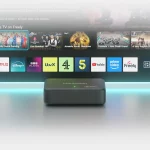450% Faster – Ookla Reveals UK 5G Mobile Broadband Speeds

New data from internet speed testing giant Ookla (Speedtest.net) has shown how well early 5G mobile networks – including EE (BT), Vodafone and O2 – are performing across England, Scotland, Wales and N.Ireland. Overall the new mobile broadband tech is more than 450% faster than older ones, albeit not as impressive for uploads.
As usual we have to start with the caveats. At present 5G technology has only just been introduced and as such its coverage is still quite limited, with EE having the strongest availability due to going live a couple of months ahead of Vodafone and they, in turn, are also ahead of O2 for a similar reason. Meanwhile Three UK has only gone live with a dedicated mobile broadband service (not Smartphones) and thus is not yet being included.
The early deployments won’t have many users and so their backhaul capacity will not be under the same sort of strain as existing 4G networks. On top of that the three initial operators only have access to a fairly small 40-50MHz slice of the 3.4GHz band, which will seriously limit their top speeds until Ofcom releases several more bands in 2020 (existing 4G services have access to much more spectrum across several bands).
Advertisement
Despite these limitations it’s notable in Ookla’s report, just as it has been in other tentative early studies of the same operators (examples here and here), that early 5G networks are still able to deliver significantly faster average mobile data speeds than existing 4G services. Likewise there isn’t currently a vast performance difference between the regions.
Average UK 5G Speedtest Results (Mbps)
| 5G Download | 5G Upload | All Mobile Download | All Mobile Upload | |
|---|---|---|---|---|
| United Kingdom | 176.00 | 19.24 | 31.23 | 11.25 |
| England | 177.41 | 19.35 | 32.22 | 11.37 |
| Northern Ireland | 171.60 | 23.11 | 23.89 | 10.96 |
| Scotland | 175.05 | 15.76 | 30.66 | 11.38 |
| Wales | 176.69 | 18.25 | 30.69 | 10.50 |
Clearly download speeds are significantly faster (more than 450%) on 5G than existing networks, although upload speeds were only between 38.5% and up to 110% faster (not as good but still a noteworthy improvement). In terms of the regional performance by network operator it’s perhaps no surprise to find that EE leads the pack (likely benefiting from wider availability and better access to fixed backhaul capacity).
Average UK 5G Speeds by Network Operator (Mbps)
Advertisement
| Operator | 5G Download | 5G Upload | 5G Top 10% Down | 5G Top 10% Up |
|---|---|---|---|---|
| EE | 205.02 | 19.17 | 359.66 | 34.85 |
| O2 | 159.48 | 17.28 | 261.32 | 27.55 |
| Vodafone | 140.15 | 19.36 | 230.57 | 32.97 |
Ookla also includes some results for latency (measured in milliseconds where a lower figure is faster), which found that EE’s 5G network produced a latency time of 25ms, while O2 was similar on 26ms and the best latency came from Vodafone on 21ms. By comparison we’re familiar with seeing 4G networks that have latency times of around 38-50ms and so there’s a fair improvement, which is good news for faster paced multiplayer game fans.
On the other hand the target latency time for 5G networks in a mobile environment is generally sub 10ms and clearly there’s still some work to do on that front, although networks do mature over time and this will hopefully improve once we’re a few years down the road. Equally it should be said that Ookla’s own server responses may be adding to the latency figures.
Finally, Ookla also includes a short comparative report on the 4G speeds by different network operators, which helps to put the aforementioned 5G performance into a little more perspective.
Average UK 4G Speeds by Network Operator (Mbps)
Advertisement
| Operator | 4G Download | 4G Upload | 4G Top 10% Down | 4G Top 10% Up |
|---|---|---|---|---|
| EE | 42.91 | 12.69 | 91.71 | 29.39 |
| Virgin Mobile | 35.67 | 13.12 | 67.45 | 29.73 |
| Vodafone | 33.32 | 12.92 | 75.76 | 25.57 |
| Three | 24.11 | 11.49 | 54.17 | 23.87 |
| O2 | 22.95 | 10.04 | 49.97 | 19.17 |
One point that should be noted is just how much faster 5G is, on average, than Openreach’s (BT) previous generation of fixed line Fibre-to-the-Cabinet (FTTC) based broadband ISP technologies. In the past fixed lines have usually retained a small to modest performance lead over mobile but we’ve seen that eroded with 4G and now 5G threatens to exceed it.
The inherently slow pace of deployment for new full fibre (FTTP) networks means that 5G may in many areas find itself looking much more attractive than some fixed line equivalents, especially with “unlimited” usage allowances having now become an industry norm for mobile.
Virgin Media can initially counter this with their Gigabit speed upgrades but it’s a bigger threat to Openreach (they’re still dominated by FTTC that tops out at 80Mbps) and 5G’s future direction is also headed toward Gigabit speeds, which may eventually even threaten Virgin Media. Only time will tell how all of this pans out.
Mark is a professional technology writer, IT consultant and computer engineer from Dorset (England), he also founded ISPreview in 1999 and enjoys analysing the latest telecoms and broadband developments. Find me on X (Twitter), Mastodon, Facebook, BlueSky, Threads.net and Linkedin.
« RootMetrics Show UK 5G Mobile Broadband Speeds in London UPDATE
SSE Drops ADSL to Focus on Cheaper FTTC Broadband Plans »






















































Comments are closed